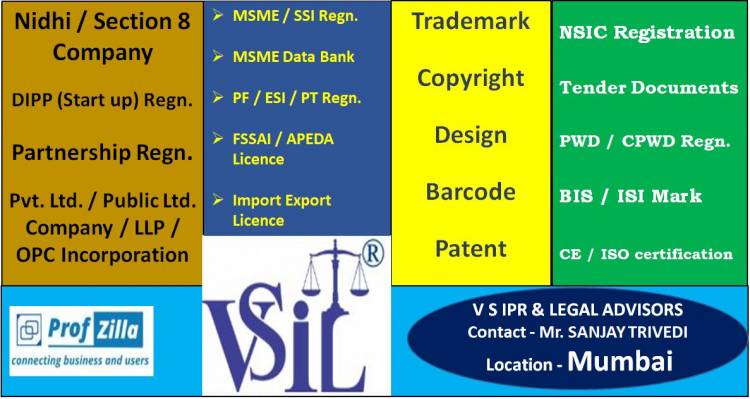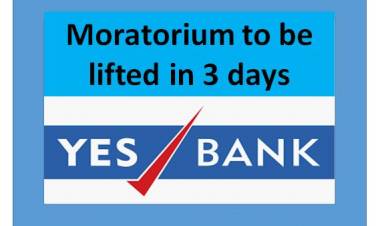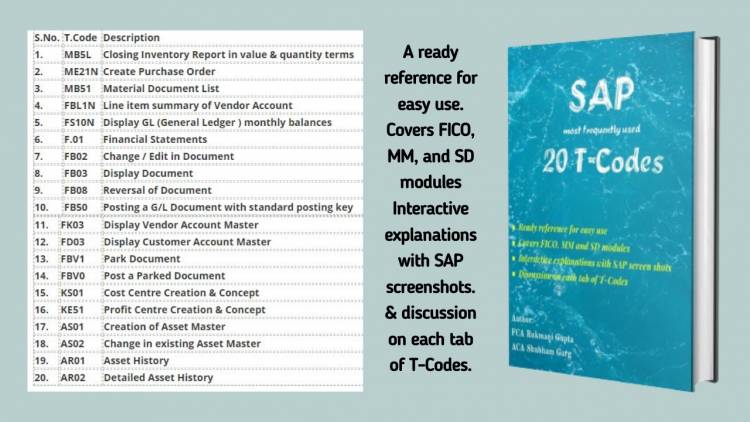Process of Statutory Audit of Banks
Statutory Audit of Banks
Statutory Audit is an audit which is required under any statute / law if certain criteria are being met by the organisation. Chartered Accountants are eligible to perform statutory audit.
Here we will discuss statutory audit with reference to banks in detail i.e. Statutory Audit of Banks:
1. Meaning & Applicability
Statutory Audit of banks is an audit which is prescribed by the Reserve Bank of India (RBI). Statutory Audit of banks is required to be done mandatorily. Statutory Audit of bank is conducted by Chartered Accountants who are appointed by RBI in association with the ICAI through the process of empanelment.
After the end of the previous financial year, in every branch of the banks, Statutory Audit is conducted.
2. The Process of Statutory Bank Audit
After getting allotment in empanelment, the auditor should immediately accept the appointment and should send formal letter to the concerned branch and along with detail of all the information required to do the audit.
The Statutory Auditors should make sure that the Audit Report prepared by them complies with the requirement of SA 700 / SA 705 & SA 706 etc. And the auditor should also ensure that their report do include the qualification of interest income / expenses, advance and deposits.
Main important things to be covered in statutory audit:
- Verification of loan accounts:
- Verification of Cash
- Tax Aspects
A. Verification of Loan Accounts
Being a major part of assets of banks, verification of loan accounts should be done with great caution. The verification of Loan Accounts can be covered in three parts:
a. Disbursement Conditions
b. Post Disbursement Compliances
c. Preliminary Check
a. Disbursement Conditions
With respect to disbursement, auditor should check the following:
- All the terms & conditions of sanction letter are complied.
- Duly accepted sanction letter is received.
b. Post Disbursement Compliances
Auditor should check that the post disbursement compliance like documentations / certificates / NOCs are duly submitted by following checks:
- All the original documents of security are held in the safe custody of bank.
- NOCs and reports from other existing bankers are duly obtained.
- Valuation of security is done and valuation report is available in loan file. And also make sure that value of property is sufficient to cover the loan as per sanction letter.
- External credit rating is done and valid.
- Due diligence certificate is obtained.
- CIBIL Report and scores are good.
- Check that DP (drawing power) is available as per the stock statements submitted by customer after reducing margins as per sanction letter.
- Check stock audit report and adverse remarks, if any.
- Repayment of loan and interest servicing is regular or not.
- Check the status of NPA i.e. NPA are created as per norms or not.
c. Preliminary Check
- Loan application
- KYC documents
- Project report along with projected financials
- Latest audited financials
- Boar Resolution
- Government registrations and permission like pollution, electricity, water etc.
- Technical feasibility
- Short Review / Technical Review
- Adhoc Limits / Temporary limits
- Appropriate Authorization Levels
B. Cash Verification Procedure
Cash balance as on 31st March should be verified by following procedure:
- Cash vaults are opened by the joint custodians or not
- Any unrecorded items are kept in cash vault or not
- Proper record of currency accepted from public is maintained or not
- Security alarm in cash room are working properly or not
- Branch opening times and closing times are followed or not
- Cash is transferred from cash vault to cash room in proper locker box or not
- Cash counting machine and duplicate note checking machines are working properly or not
C. Tax Aspects
Following important tax related aspects should be checked by statutory auditor:
- TDS is deducted properly on all the interests, rent or professional fees etc as per Income Tax Act.
- All the tax deducted by bank and other tax due to be paid by bank are duly deposited on time and challans are available
- All the tax related returns / TDS return are duly filed by bank
- All the forms like 15G and 15H are collected
- TDS certificates are issued on time
- Any adverse comment in concurrent audit, related to tax
3. Audit Report
After completion of audit, the auditor is required to submit the audit report. Auditor has to state following:
i. Whether the balance sheet is showing true and fair view for the period of audit
ii. Whether the profit and loss account shows a true balance for the period covered
iii. Whether any unauthorised transaction has been carried by the branch
iv. Any other matter which the auditor considers to be important
4. The Content of Audit Report
|
Main Heading |
Contents |
|
Title |
‘Independent Auditor’s Report’. |
|
Addressed to |
Mention clearly to whom the report is being given to. |
|
Date of Audit Report |
Date on which Audit Report is Signed. |
|
Management’s Responsibility for Financial Statements |
Mentions that to Prepare the Financial Statements is responsibility of management. |
|
Auditor’s Responsibility |
Mention that the responsibility of the Auditor is to express an unbiased opinion on the financial statements audited by him and to issue an audit report based on that report. |
|
Opinion |
Overall opinion obtained from the audit of financial statements should be mentioned |
|
The basis of the opinion |
The basis on which the opinion as reported has been achieved should be stated along with facts. |
|
Signature of the Auditor |
The Auditor shall sign the audit report. |
5. Long Form Audit Report (LFAR)
Apart from submission of normal audit report, Bank’s statutory auditors are required to submit an detailed report as per guidelines prescribed by RBI i.e LFAR – Long form Audit Report.
Normally LFAr is required to be submitted before 30th June if the date is not extended. So auditors should try to submit the LFAR on time.
Other Main Points to be noted while doing statutory bank branch audit
Following points to be noted regarding handling mutilated notes / exchange of Mutilated notes from Public:
- Register of mutilated notes is maintained or not like notes received, exchanged & rejected etc.
- Register of counterfeit notes is maintained in prescribed format or not
Maintenance of Complaint register / Display of notices
- Complaint register is available and details of complaints are entered in the complaint register and the resolution is updated in the register or not.
- Whether the complaint box is placed at a prominent place which can be viewed easily by the customers.
- Whether the notice "Customers can also tender the cheques at the counter and obtain acknowledgment on the pay-in-slips" is displayed at the Branch.
- Keys of the Complaint box are available with the branch head only & not with other officials.
Other Audits of Banks
- Any Audit by RBI is conducted during the audit period, if yes, whether the same has been closed or not and what were the comments of auditor
- Any concurrent audit is conducted or not and comment on compliances done by branch.
- Is there any pending issues which are pending beyond 60 days at the time of statutory audit.
Validity of the lease deed / rent agreement of the branch
check the validity of lease deed / rent agreement of the branch and the rent of the premises is being paid according to the terms and conditions mentioned in the lease deed or not.
Audit of clearing account/transactions:
- Branch has taken balance confirmation from other Banks in which it is maintaining the account or not.
- Whether or not the branch is doing Periodical reconciliation of clearing account. If there is any whether the same has been adjusted or not.
- If there is any delay in debit to party account- Check reason for delay/Approval etc.
- If there any entry relating to Bank Guarantee invoked outstanding for more than 3 months, check reason for that.
- Whether or not the Branch has paid the amount of LC devolved to the concerned bank, if yes, is there is any entry outstanding for more than 3 months.
- Check that all the overdue usance bills have been crystallized by the branch on due dates and there is no any entry outstanding for more than 3 months.
Window dressing in deposits and advances as on
31st March
Try to find the cases of window dressing if any. Like, if there is any sharp rise or fall in any deposit / advance account immediately next days after the closing i.e. 2nd or 3rd April etc. similarly can check other accounts like BG invoked, LC Devolved etc.
Review / Monitoring / Supervision
- Check whether the stock statements are are being regularly submitted by the borrowers at stipulated intervals and these are checked and filed properly.
- Check that Drawing Power in the accounts is calculated properly and margin is maintained as stipulated in the sanction letter.
- Check that all the MIS / FFR / QIS are submitted by customer on time.
- Verify whether the Turnover in the CC Accounts are commensurate with Annual Projections.
- Verify that in case of Consortium Loans the Consortium Meetings are held at quarterly intervals and Minutes & Information are exchanged between the Banks.
- Check that in case of Project Finance the disbursement has to be made strictly as per project implementation schedule.
- Check that repayment schedule has been implemented as per the sanction letter or not and in case of deviation approval has been taken from proper authority or not.
- All other Loans such as Vehicle / Housing/ Personal Loans etc have been sanctioned as per policy of bank.
Bills related checks:
- Bills are purchased/ discounted of the tenor as per sanctioned terms.
- Party wise limit to be checked.
- Whether overdue export bills beyond 180 days are reported to RBI.
- Bank Guarantee and Letter of Credit are issued as per the terms and conditions of sanction letter and any commission earned thereon is recovered appropriately.
Short Review/ Tech Review / Adhoc Loan/ Temp Loan
- Check Application from Borrower
- Reason for Short Review and not full Renewal
- Limited Financial Documents submitted
- Credit Appraisal
- Sanction up to 90 days
- Another 90 days by Higher Authority
- Report if the process is not followed
- Example - Natural Calamity, Contingency,
- Typical at Year End
Primary Security related points:
Book Debts-
The bank required that the book debt statement should be certified by a Chartered Accountant at quarterly intervals. We have to check on random basis whether this is being done or not.
Stock- Raw Material, Finished Goods, WIP etc.
Check that the value of stock is good enough to cover the amount of debt as per sanction letter. Note that goods received against unpaid LC should not be treated as paid stock instead be treated as unpaid stock, like creditors.
Irregularities in respect of Insurance
- Insurance of stock is short
- Insurance not renewed
- Policy is not having bank clause
- All risks not covered as per sanction letter
- Wrong coverage of items in policy or wrong location of goods
- All the locations are not covered
Irregularities in respect of Stock and Creditors
- Slow moving stock are not mentioned separately
- Obsolete stock not excluded
- Stock turnover ratio not maintained
- S statements does not match with financial statements
- Third party stock received for job work added in stock statement
Irregularities in respect of Debtors
- Debtors outstanding for long time are not mentioned properly
- Long pending debtors classified as current debtors
- Receivable from sister concerns included in debtors list
- Bad debts not written off
 Download APP
Download APP
 P K Gupta
P K Gupta 










































